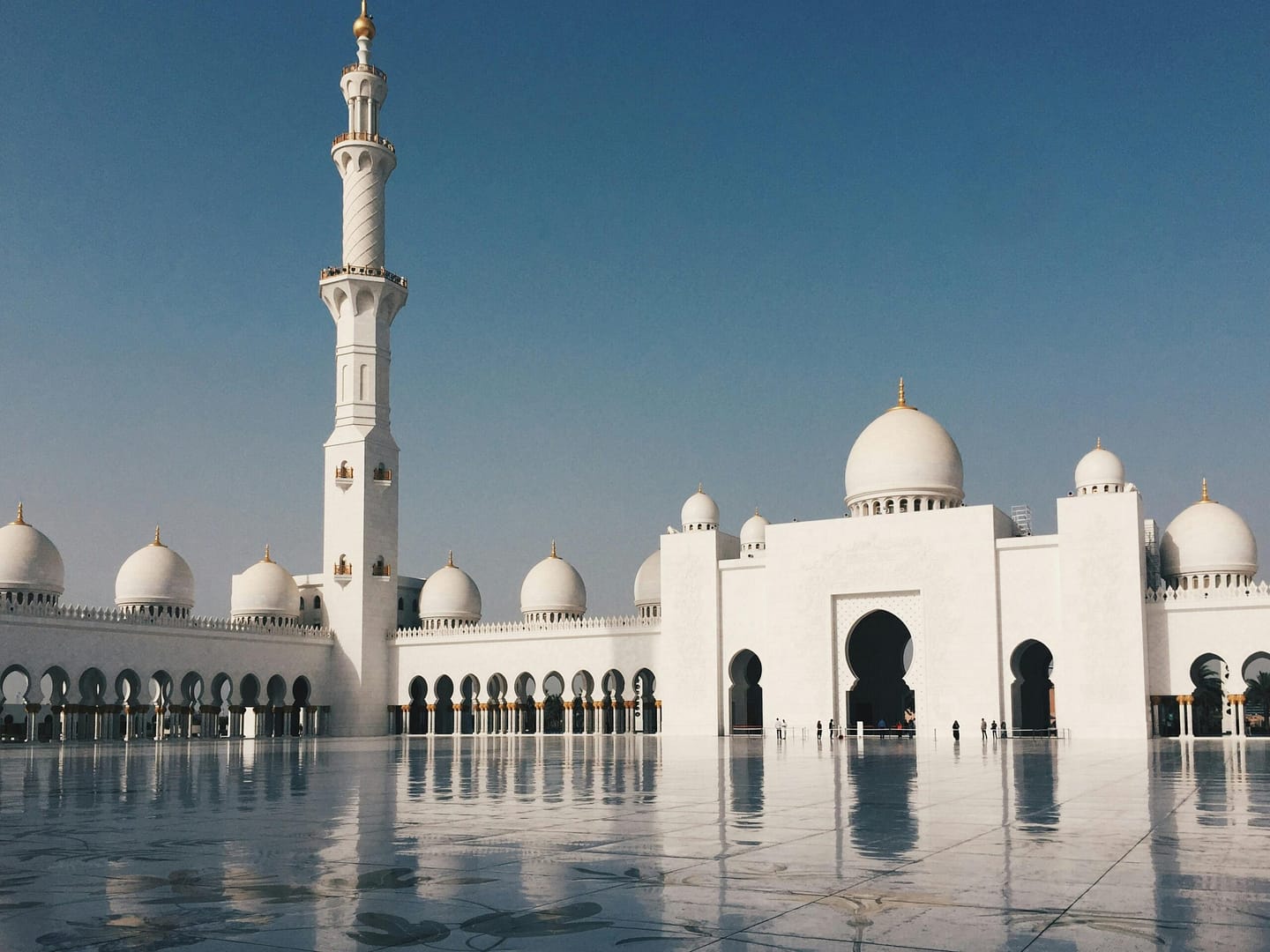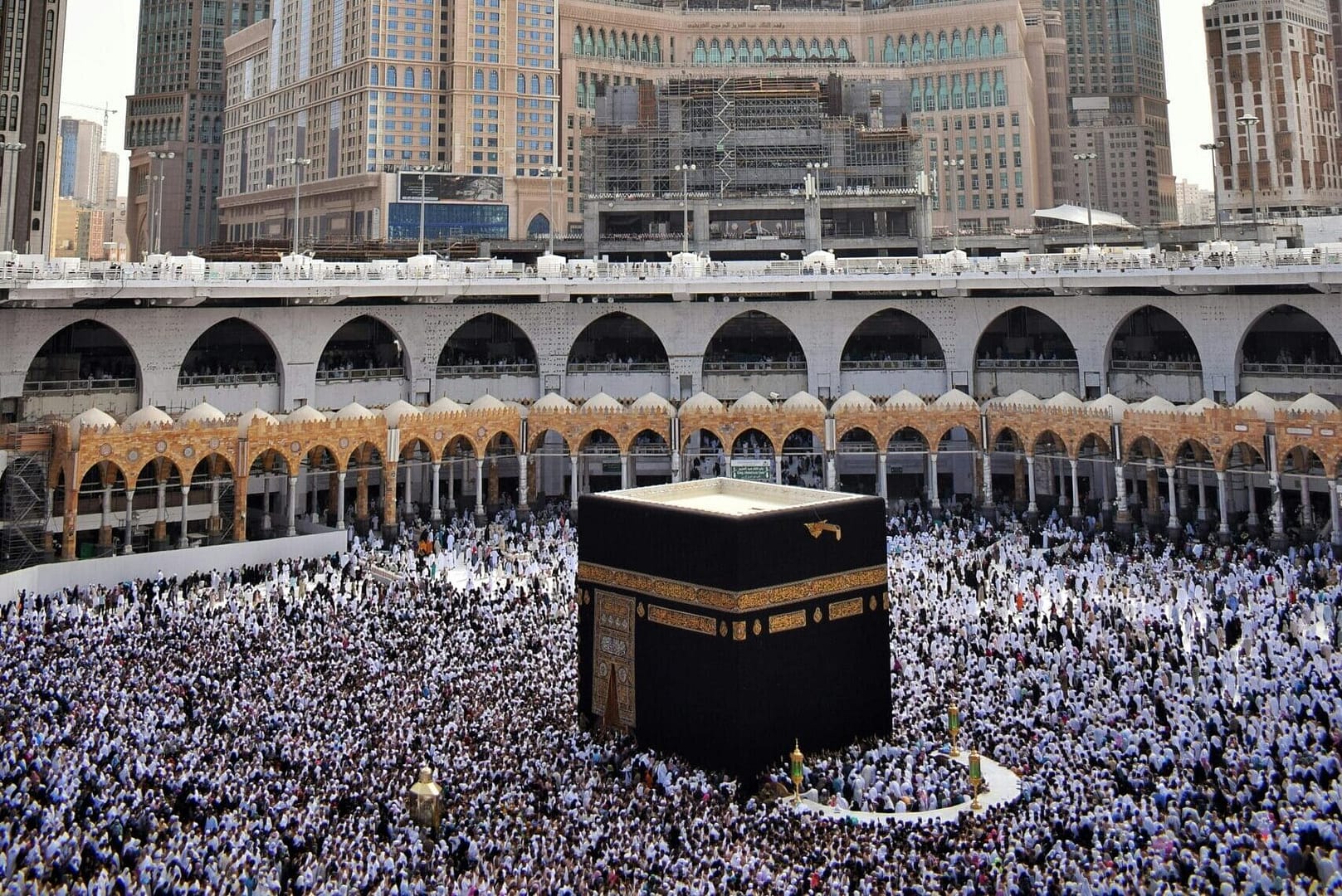Hajj is the sacred pilgrimage to Makkah that every able-bodied and financially capable Muslim must undertake at least once in their lifetime. As one of the Five Pillars of Islam, Hajj holds immense spiritual, emotional, and physical significance.
What Is Hajj in Islam?
Hajj in Islam is a profound act of worship consisting of a series of rites performed during specific days of Dhul Hijjah—the final month of the Islamic calendar. These rituals are rooted in the practices of Prophet Ibrahim (AS), his family, and the teachings of Prophet Muhammad (ﷺ).
The Qur’an emphasizes the obligation of Hajj in Surah Al-Fath:
“You will enter the Sacred Masjid, God willing, perfectly secure, and you will cut your hair or shorten it (as you fulfil the pilgrimage rituals) there. You will not have any fear…”
— Qur’an, Surah Al-Fath (48:27)
The Importance of Hajj
Hajj is more than just a physical journey—it’s a powerful spiritual transformation. As Prophet Muhammad (ﷺ) said:
“Whoever performs Hajj for the sake of Allah and does not utter any obscene speech or do any evil deed, will go back (free of sin) as his mother bore him.”
— Sahih al-Bukhari
Hajj symbolizes:
- Submission to Allah (SWT)
- Unity of the Muslim Ummah
- Opportunity for forgiveness and renewal
- Strengthening of Taqwa (God-consciousness)
What Happens During Hajj? – The 18 Steps of Hajj at a Glance
- Preparation and Intention (Niyyah)
- Entering the state of Ihram
- Tawaf (7 circuits around the Kaaba)
- Safa and Marwa (walking between two hills)
- Shaving or trimming hair (ending Umrah for those doing Hajj al-Tamattu’)
- Resting and praying
- Re-entering Ihram for Hajj
- Travel to Mina
- Day of Arafah (main day of Hajj)
- Night in Muzdalifah
- Rami (stoning the devil at Jamarat)
- Qurbani (sacrificial animal)
- Shaving head (for men)
- Tawaf al-Ifadah
- Rami (2nd day)
- Stay overnight in Mina
- Rami (3rd day)
- Farewell Tawaf (Tawaf al-Wida)
Each ritual has deep symbolism, and the entire experience aims to purify the soul, strengthen faith, and unite Muslims in devotion to Allah (SWT).
Why Do Muslims Perform Hajj?
Hajj is not only a religious obligation but a once-in-a-lifetime opportunity to gain nearness to Allah. It is commanded in the Qur’an:
“And Hajj to the House is a duty that mankind owes to God, those who can afford the expenses.”
— Qur’an 3:97
Along with Shahada, Salah, Zakat, and Sawm, Hajj completes the structure of a Muslim’s faith. For those who can afford it, missing Hajj without a valid reason is a serious shortcoming.
The Spiritual Virtues of Hajj
- Forgiveness of sins: Hajj cleanses a person’s past sins.
- Gateway to Paradise: A Mabroor (accepted) Hajj has no reward but Jannah.
- Elimination of poverty and sin: Continuous Hajj and Umrah purify just as fire removes impurities from metal.
Hajj vs Umrah
| Hajj | Umrah |
|---|---|
| One of the Five Pillars of Islam | A voluntary act of worship |
| Performed only during Dhul Hijjah | Can be done any time of the year |
| Lasts 5–6 days | Can be completed in a few hours |
| Includes Arafah, Muzdalifah, Mina | Does not include these sites |
| Mandatory once in a lifetime | Not obligatory |
Who Is Required to Perform Hajj?
Hajj is obligatory upon Muslims who meet the following conditions:
- Islam: Only Muslims are required to perform Hajj.
- Sanity: Not required from the insane.
- Puberty: Children can perform Hajj, but must repeat it after puberty.
- Freedom: Slaves (in historical context) had to be free.
- Physical and financial ability: A person must have the means to travel and support themselves and their family during Hajj.
Those permanently unable due to illness can appoint someone to perform Hajj on their behalf, as per authentic Hadith.
Final Thoughts
Hajj in Islam is a symbol of devotion, unity, and renewal. It offers Muslims a chance to cleanse their sins, demonstrate submission to Allah, and seek closeness to Him. Its physical challenges are outweighed by the spiritual elevation it brings.
May Allah (SWT) grant every eligible Muslim the opportunity to perform a Mabroor Hajj.
📚 Want to deepen your understanding of Islam and its core teachings?
Join our comprehensive courses at My Deen Institute and start your journey toward stronger faith and knowledge today.


